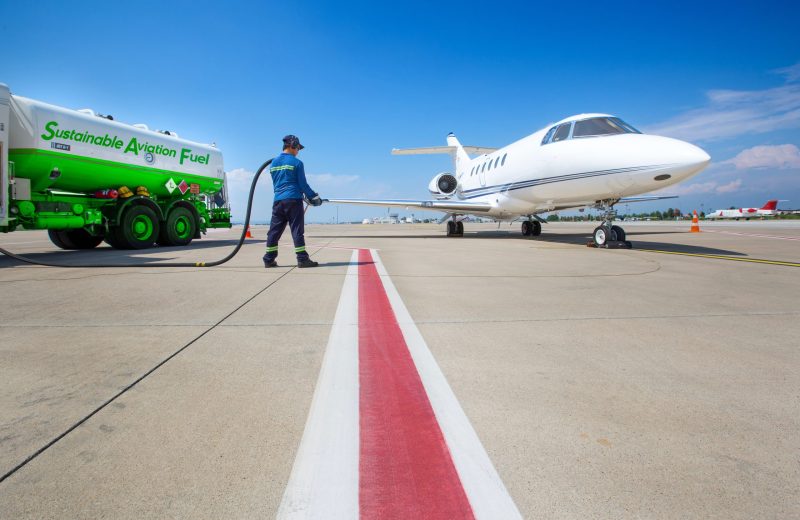Cleaner aviation industry ‘needs disruptive investment’

Cleaner business aviation depends on disruptive investment, claim researchers. (Photocredit: Shutterstock).
Ensuring a cleaner, more sustainable business aviation industry means taking greater investment risks with technologies and new enterprises to lower emissions, according to research from University College Dublin Michael Smurfit Graduate Business School.
“Showing that the [business aviation] industry is serious about decarbonisation will make business aviation operators more appealing to lenders, allowing banks and financiers to be able to point to a reduction in emissions from the sector,” Thomas Conlon, professor of Finance from UCD Smurfit School told CJI. “In turn this allows financiers to continue to support the industry. This may help an industry which is prone to market cycles.”
While developing and adopting greener solutions in aviation is risky and expensive, the research reveals that smarter ways of managing investment risk could speed up the shift towards cleaner air travel and other hard-to-decarbonise sectors.
“The technology to support clean aviation exists, but it requires a new way of framing the relationship between risk, return and sustainability,” said Conlon. “Capital needs to flow towards risky innovations that will really move the dial in terms of deep decarbonisation.”
Help investors
To help achieve that progress, Conlon and colleagues have devised a new tool called an Aviation Sustainability Index (ASI), This is a quantitative method to assess how different technologies or investments could help decouple emissions from growth in air travel. The approach is designed to help investors distinguish between projects that only modestly improve efficiency and those that could significantly transform the sector’s climate impact.
Conlon said: “The proposed ASI provides a greenwashing resistant way to underpin sustainability linked financing to the sector, allowing investors to identify innovations will truly move the dial.”
It’s a tool that could prove particularly useful for business aviation as scrutiny of its emissions record intensifies. “Regulators may, in future, see this as a low hanging fruit to reduce the overall contribution of emissions to climate change,” Conlon told us. “By adopting the approach outlined in this paper, the business aviation sector can quantify and point to success in decarbonisation while also allowing them to obtain capital to support the carbon-neutral growth of the industry.
About $1trn is expected to be invested in aviation over the next decade, with most of that money targetted at making aircraft slightly more efficient, according to the report’s authors Few investors have clear incentives to back the kind of breakthrough technologies, such as hydrogen propulsion, advanced aircraft designs, or large-scale sustainable fuel systems, that could substantially reduce emissions, they claim.
Reduce contrails
Business aviation operators could commit to purchasing sustainable aviation fuel (SAF) and to demanding more fuel-efficient aircraft from OEMs, said Conlon. Another, potentially easy, lever available to business operators is to understand and reduce the contrails associated with these aircraft, which may be a low-cost way to reduce climate impact.
The research report’s co-author, David G Victor, professor of Innovation and Public Policy from the UC San Diego School of Global Policy and Strategy said: “Cleaner flight is possible, but it requires changing how we think about both risk and return. We need new institutions, incentives, and partnerships that reward innovation, not just incrementalism.”
Developing better tools to test climate-friendly investments and rewarding companies to take calculated risks on breakthrough technologies, governments, investors and industry leaders can accelerate real progress toward decarbonisation, conclude the researchers. Read more about their conclusions here.
Meanwhile, earlier this month the global warming contribution from business aviation contrails was revealed in new report published by charter broker Victor and sustainability specialist 4AIR. The inaugural Contrails Analysis Report urges business aviation to modify flight plans to minimise contrails and airlines to publish similar studies.
Plus, Corporate Jet Investor’s own research on industry views about SAF are featured in the latest edition of CJI magazine.







